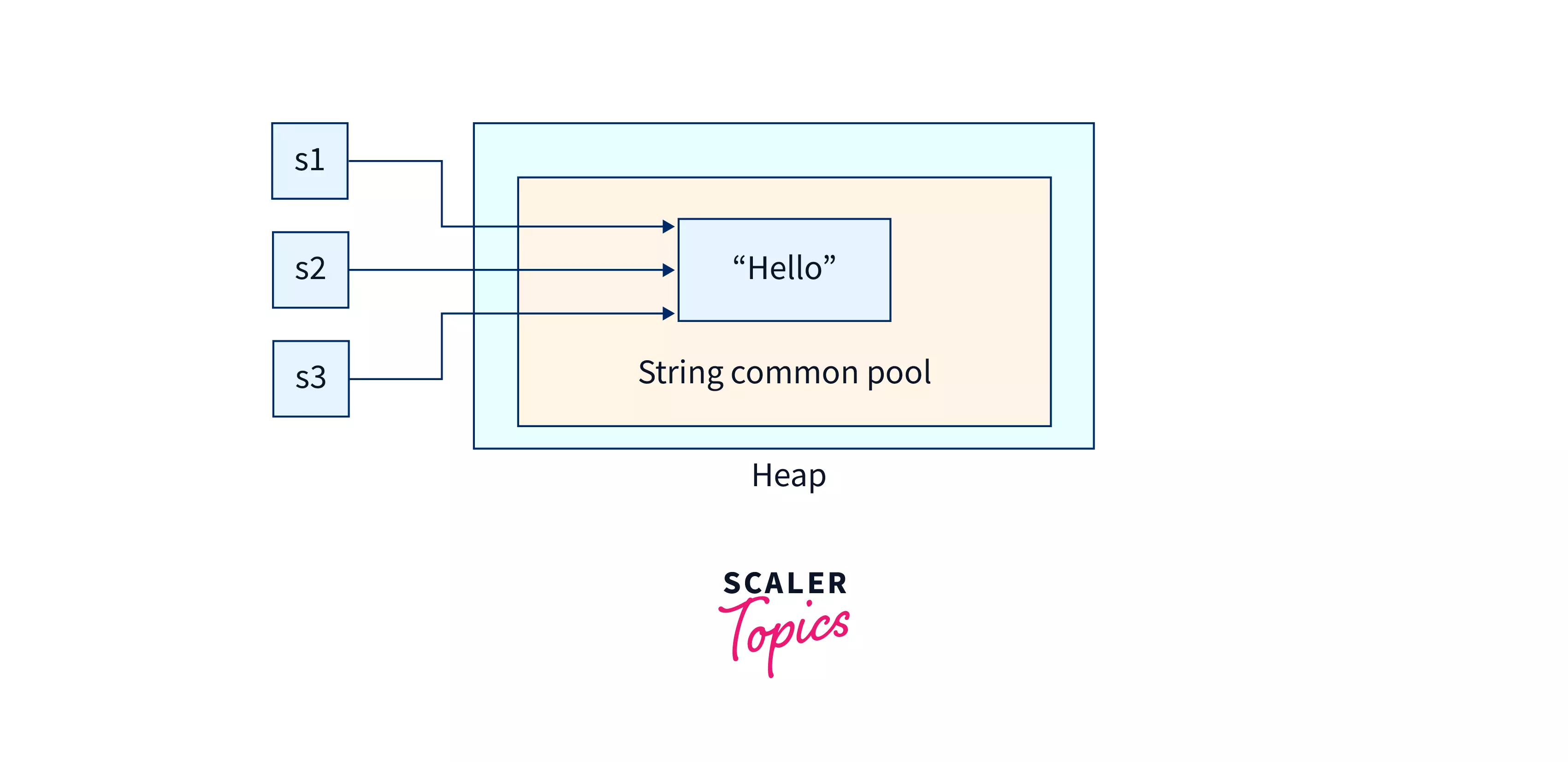Why Are Strings Immutable in Java? Finest Practices and Usage Instances
Why Are Strings Immutable in Java? Finest Practices and Usage Instances
Blog Article
Checking Out the Advantages of Immutable Strings in Modern Programs Paradigms
In the realm of modern shows standards, the idea of unalterable strings stands as a foundation of durable software advancement. By taking on unalterable strings, designers can ensure boosted data stability, improved thread safety and security, streamlined debugging processes, raised security procedures, and reliable performance optimization.
Improved Data Honesty

By stopping the alteration of string objects, immutability gets rid of the threat of unintended changes to the data they hold. This not just enhances the protection of the information but likewise improves the dependability of the code that relies upon these strings.
Immutability additionally supports safer multithreading atmospheres, as concurrent access to immutable strings does not present the danger of data corruption with synchronised alterations. This building streamlines the process of dealing with strings in parallel programming scenarios.
Fundamentally, immutability works as a protective shield around the data saved within strings, improving their stability by ensuring that once specified, their worths stay the same throughout the program's implementation.

Improved String Safety
Unalterable strings enhance the string safety of programs by making sure that as soon as a string things is produced, its worth can not be modified. This property eliminates the risk of simultaneous threads attempting to change the exact same string simultaneously, which can cause data corruption or inconsistent states in the program - Why are strings immutable in Java?. In a multi-threaded environment, where multiple threads accessibility and manipulate information all at once, the immutability of strings offers a degree of safety and security by assuring that the information continues to be unchanged throughout its lifecycle
Simplified Debugging Processes
Provided the improved string safety promoted by unalterable strings, a considerable benefit emerges in the world of streamlined debugging processes. Unalterable strings, when created, can not be changed, making it less complicated to trace the circulation of information and determine the resource of pests in a program. This immutability ensures that strings stay constant throughout the implementation of the program, decreasing the probability of unanticipated adjustments that could result in mistakes.
When debugging with mutable strings, designers often encounter concerns where a string's value is modified unintentionally, making it testing to identify the origin reason of a pest. However, with immutable strings, the data stays unchanged, allowing developers to concentrate on assessing the real reasoning of the code instead than finding where and when a string was changed incorrectly.
Furthermore, unalterable strings streamline the debugging procedure by allowing simpler recreation of pests. Given that immutable strings do not change state, developers can recreate and research insects more successfully, leading to quicker recognition and resolution of issues within the codebase. This streamlined debugging operations inevitably adds to greater software quality and improved overall growth effectiveness.

Raised Safety Actions
Enhancing data security visit here and fortifying system honesty, the application of unalterable strings in software program applications contributes dramatically to raised security actions. Immutable strings additionally play an essential role in protecting against typical safety vulnerabilities such as barrier overflows and SQL injection strikes, as efforts to control string data at runtime are naturally restricted.
Furthermore, the immutability of strings boosts the predictability of program behavior, making it simpler to validate inputs and avoid unforeseen adjustments that could endanger safety and security. This predictability streamlines the procedure of bookkeeping and verifying code, making it possible for designers to determine possible safety technicalities better. Generally, including immutable strings right into software application development practices not only enhances the effectiveness and reliability of applications but also reinforces their strength against protection risks.
Efficient Efficiency Optimization
Building upon the structure of increased safety procedures achieved via the utilization of unalterable strings, a vital element to think about in software application development is reliable efficiency optimization. When handling mutable strings, procedures like concatenation or substring creation usually lead to hop over to here the production of new string things, causing memory overhead and enhanced processing time. However, with immutable strings, these operations can be optimized to boost efficiency. By enabling strings to continue to be consistent and unchangeable, unalterable strings help with much better memory management and caching opportunities, eventually boosting the overall efficiency of the software program.
Given that immutable strings can not be customized when created, they can be shared across threads without the risk of unforeseen changes, reducing the demand for synchronization devices and boosting concurrency. Immutable strings streamline debugging processes as developers can rely on that a string's value will certainly remain constant throughout the program's execution, eliminating prospective mistakes created by mutable state changes.
Verdict
To conclude, the advantages of making use of unalterable strings in modern programs paradigms can not be overstated. Improved information honesty, improved string security, simplified debugging processes, increased security procedures, and reliable efficiency optimization all add to the general performance of shows jobs. By including immutable strings into programming methods, developers can gain from a more dependable and robust codebase.
Immutability, a key feature of strings in shows languages such as Java and Python, guarantees that as soon as a string object is produced, it can not be modified or customized.Unalterable strings enhance the thread safety of programs by making sure that once a string item is produced, its value can not be modified. Immutable strings additionally play a crucial duty in stopping usual protection vulnerabilities such as buffer overflows and SQL injection strikes, as efforts to manipulate string information at runtime are naturally restricted.
By permitting strings to stay consistent and stable, unalterable strings assist in better memory management top article and caching chances, eventually improving the total performance of the software program.
Immutable strings streamline debugging processes as programmers can trust that a string's worth will continue to be consistent throughout the program's execution, removing prospective errors created by mutable state modifications.
Report this page